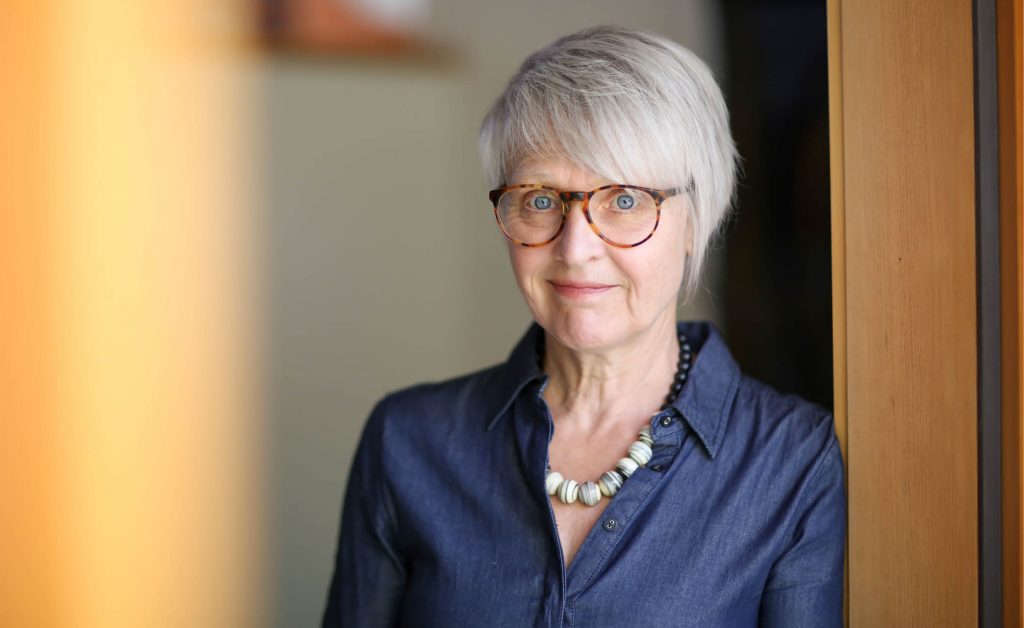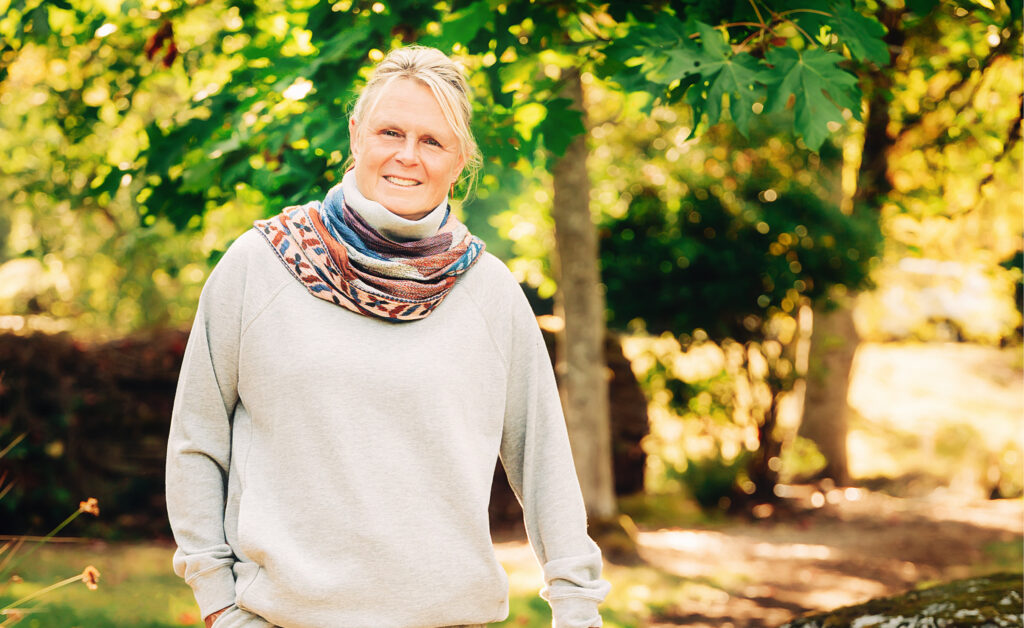by Deborah Rogers –
“Dear Evelyn” is a beautifully written novel, set in England, that takes us from birth to (almost) death in the life of Harry Miles. There’s literature and poetry woven throughout the novel as we follow Harry’s life: meeting Evelyn before the second world war; their relationship during the war; marriage, children, a move from the city to suburbia; then later life, retirement and old age. Kathy Page won a Rogers Writers Trust Fiction prize for Dear Evelyn in 2018. Our group was fortunate to have Kathy join us at our June meeting. She shared all sorts of insights about the inspiration and research that brought the book to life and her general writing process. It was an incredible opportunity. A very short extract of our Q&A follows.
What inspired you to write this particular book?
Most of the time when I’m writing a novel I start with some kind of really difficult question to answer. This time the book is personal – not autobiographical, but certainly inspired by events from my family and my life. My sisters and I became very aware as our parents moved into their 90s that what had always been a bit of an argumentative relationship actually became embattled. It was distressing to see, and difficult to deal with: as an adult child there’s not much you can do about your parent’s marriage. At the same time my mother started going through her possessions and declutter, and one of the things she wanted to pass on was a collection of love letters from my father during the Second World War. The whole family read them and it was clear to me that they were important – and they showed a huge contrast from where they were at the beginning of their relationship, full of romance and passion and a real intent to maintain a relationship. I decided the only way to explore this was through fiction, but fiction that’s closely linked to the truth – the question I wanted to explore was “could you see the seeds of how things ended up in how things began?”
Dear Evelyn spans decades in the lives of Harry and Evelyn. How did you decide which moments to highlight?
It’s unusual to write a birth-to-death novel – rather than picking the most dramatic moments. I knew I didn’t want to plod through every step of the way, I wanted to pick moments that seemed to really suggest quite a lot about not just what was happening in that moment, but also were indicative of the things to come.
Books and poetry are woven throughout the narrative. Can you tell us about that?
The poetry is partly there to do with character; it’s also part of the cultural background. My father was someone who loved poetry – poetry used to be a shared language and shared knowledge for people who went to school between the wars. It was also a way of connecting to a spiritual aspect. The characters in the novel are not religious, but poetry serves as a way to connect with those parts of ourselves.
How did you feel while you were writing this? Was it cathartic for you?
I did find it cathartic to complete the book. It took a long time, but I found it a satisfying book to write and I’m happy with where I left it. I feel a kind of affection for the characters – even though inspired by my family, they feel like characters. I like them as difficult or flawed people.
Next month’s Book Club takes place on Tuesday, July 20 at 6:30 p.m. We’ll be discussing Say Nothing: A True Story of Murder and Memory in Northern Ireland by Patrick Radden Keefe. Find out how to read a copy from the Book Club set by contacting the Sidney/North Saanich library. Sign up to our email list to stay up to date with all the details: www.seasidemagazine.ca/book-club.




